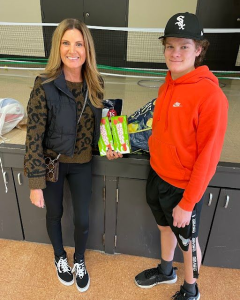About
Mission:
Uniting families within communities to resources, services, and education that will provide a positive impact to their daily lives and further promote a healthy environment in which children can live and grow successfully.
Vision:
To effectively invest in & support neighborhoods to be proactive in alleviating the conditions that put youth and families at risk within DuPage and Will Counties.
The DuPage County Area Project (DuCAP) grew out of the Area Project model that was developed at the University of Chicago in the 1930’s by sociologist Dr. Clifford R. Shaw, a concept Northwestern University sociologist John McKnight reaffirmed in this century.
In the early 1990’s, a group of business and political leaders from DuPage County visited an Area Project model Community Committee program in Chicago, where community leaders shared the belief that “nothing offers a greater chance for raising a child who shares society’s values than a neighborhood where everyone works together in a positive, cooperative way to care for the children growing up in their community.” The DuPage County leaders came away determined to establish similar community groups in DuPage County.
DuCAP was incorporated as a 501(c)3 non-profit agency in 1991. As a separate, self-governing and self-operating non-profit, DuCAP took its place as one of the Statewide Affiliates of the Illinois Council of Area Projects; using their time-proven model.

Youth-Driven, Adult Supported, Objective-Based Efforts:
-
Increase in community member engagement in the development of assessment,
summarizing and analyzing data, prioritization, and selection of strategies and programs -
Improve youth decision-making in the development of assessment, summarizing and analyzing data, prioritization, and selection of strategies and programs
-
Increase youth knowledge of available resources/services and their rights and fees associated with such services
-
Improve youth role in educating peers regarding available community resources
-
Improve parent/child relationships so that youth see their parent(s) / legal guardian(s) as a trusted resource
-
Increase youth life skills, such as: problem solving, conflict resolution, decision making, handling peer pressure, relationships, coping, and stress management
-
Increase youth interpersonal, writing, and oral communication skills
-
Increase youth knowledge of career options, salaries, education, and quality of life issues associated with various professions
-
Improve parents’ communication, expectations, and overall support for their child’s academic goals
-
Civic engagement, leadership activities, and community service projects
-
Ensure services and programs selected are a good fit (age, developmental, and culturally appropriate) for the youth population
